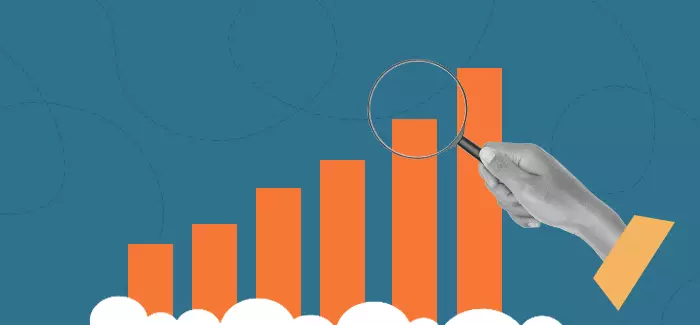What is a market research analyst?

Written by Dillon Price

Reviewed by Kathryn Uhles, MIS, MSP, Dean, College of Business and IT

Without insights into consumer behavior, market conditions and competition, businesses might find themselves at a disadvantage. Market research can help level the playing field. Here’s what’s involved in this role.Â
What does a market research analyst do?
A market research analyst’s job involves delving into data to help companies figure out what people want, how much they’re willing to pay and what drives their buying decisions. Think of them as detectives for consumer behavior and market competition.
The insights they glean from surveys, interviews and data-crunching software can help determine a company’s marketplace potential. Their findings also help shape marketing campaigns, pricing strategies, product development and company branding. Additionally, they can help startups understand the competition when entering the market.
After gathering information, they interpret the results and forecast market trends to help companies understand demand, market size, economic conditions, customer locations, market saturation, and the products and services customers are already paying for.
Plus, market research analysis involves using a variety of software such as analytics programs, customer relationship management platforms, database tools and research databases.
The day-to-day responsibilities of this role typically include:
- Tracking and predicting market and sales trends
- Measuring the success of marketing strategies and campaigns
- Designing and conducting surveys, focus groups and questionnaires to gather data directly from consumers
- Gathering data on competitors, consumers and market conditions
- Organizing written reports, graphs and tables
- Preparing and presenting results to management and clients through reports
Where do market research analysts work?
As of 2023, there were about across nearly every corner of the economy, according to the U.S. Bureau of Labor Statistics (BLS). The are management, scientific and technical consulting services (10%), finance and insurance (9%), information services (9%), wholesale trade (8%) and company management (7%). Some professionals also work directly for market research analyst companies.
Types of market research
Market research generally falls into two categories: primary and secondary.
Primary market research uses exploratory data from open-ended questions in focus groups, surveys and interviews to identify potential issues that a company should address.
Secondary research involves analyzing existing data from government census reports, trade associations, polls and competitor research. This information is typically accessible online and can help businesses understand consumer needs.
Market research methods
What started out as on-the-street interviews eventually gave way to gathering data through phone conversations. As more people switched from landline phones to mobile devices, market research has shifted primarily to online methods.
Market research gathers insights through interviews, focus groups, phone conversations and surveys. (Focus groups consist of small clusters of consumers who share their thoughts on a product or brand.) These insights help companies decide whether to launch or revise their offering.
Surveys offer a cost-effective alternative to focus groups for gauging consumer attitudes. (They don’t require in-person interviews, so the financial investment is less.) Companies typically conduct surveys online or mail them to consumers and may even include a coupon or voucher as an incentive to complete the survey.Â
Quantitative vs. qualitative market research
Market research analysts collect data from quantitative and qualitative research. What’s the difference?
Quantitative research gathers numerical data and uses statistical methods to analyze it. This type of data exists in surveys with closed questions and measures variables, relationships and generalizable data.
An example of quantitative research is the comparison of consumer behavior and brand perception between two competing beverage companies. The purpose of such research could be to analyze why consumers choose one brand over the other and which factors lead to brand switching.
Qualitative research gathers descriptive data such as words and images. This type of research can be found in interviews, observations and focus groups, and it’s typically used to understand the personal views and motives of consumers.
For example, let’s say a large coffee brand is seeking to improve its products to meet consumer needs. The company sets up a platform that allows consumers to submit ideas or suggestions in their own words. The company then considers acting on recurring customer requests (e.g., offering nondairy milk or new flavors) from these open-ended contributions.
What is the future of market research and analysis?
Looking forward, companies may implement artificial intelligence (AI) tools into market research. For example, can summarize research, extract data from interviews and generate key takeaways much faster than traditional, human-based methods. It can also help create study materials, use chatbots to collect data and set up surveys on the web.
Additionally, brands can turn to to track and analyze how customers interact with virtual products in both online and in-store settings. This technology uses screens, consoles, apps and projections to display digital information in a realistic environment.Â
Skills and qualifications for market research jobs
Market research analysts need at least a bachelor’s degree, typically in marketing, business, communication, statistics, economics, psychology or a related social science field. Courses in statistics, research methods, marketing and consumer behavior are especially useful. Some roles in leadership or highly technical research may require a master’s degree or other graduate degree that focuses on market research or business.
While not mandatory, professional certifications can help demonstrate expertise in this field.
Skills used in market research analysis include:
- Analytical thinking: This role requires the ability to interpret large sets of data and spot meaningful patterns, usually by using analytic software.
- Strong communication: Candidates need to be able to clearly explain findings to clients. Plus, they should be able to ask questions and fully understand answers.
- Critical thinking: This role requires the ability to make strategic recommendations based on evidence and trends.
- Attention to detail: Candidates must be able to ensure data accuracy and precision in analysis.
- Reading comprehension: Market research analysis requires interpreting and understanding written information found in documents.
- Problem-solving: This role requires the ability to recognize complicated issues and explore solutions.Â
Salaries and job outlook
As of May 2024, market research analysts earned between $42,070 and $144,610, with a median wage of $76,950, according to .
Salary ranges are not specific to students or graduates of °®¶ą´«Ă˝. Actual outcomes vary based on multiple factors, including prior work experience, geographic location and other factors specific to the individual. °®¶ą´«Ă˝ does not guarantee employment, salary level or career advancement. BLS data is geographically based. Information for a specific state/city can be researched on the BLS website.
This role is expected to from 2023 to 2033, which amounts to about 88,500 open positions each year. The rising importance of data and research in nearly every industry fuels the growth of market research analysis. With the explosion of big data from social media and online reviews, businesses need market research analysis to make sense of it all and turn those insights into smarter decisions.
BLS Occupational Employment Projections, 2023-2033 is published by the U.S. Bureau of Labor Statistics. This data reflects BLS’ projections of national (not local) conditions. These data points are not specific to °®¶ą´«Ă˝ students or graduates.
How to become a market research analyst
Candidates without experience may get into market research through internships or administrative roles in market research that might eventually lead to entry-level positions in marketing assistance or account representation. These early roles offer hands-on experience and a foundational understanding of how the marketing industry operates.
Candidates can also expand their career prospects by getting involved in business organizations in the market research field. The , for example, offers resources for market research analysts and marketing specialists, like webinars, conferences, industry news and legal information.
Additionally, the offers access to professional development and networking opportunities, as well as webinars and major conferences. Students can take advantage of discount memberships through the , which is a mentorship program developed in partnership with the American Statistical Association.
Education for market research analysts
If you’re interested in learning market research analyst skills, °®¶ą´«Ă˝ offers online business degrees that include a Bachelor of Science in Business with a Marketing Certificate. A stand-alone undergraduate marketing certificate is also available for those who already hold a bachelor’s degree but would like to enhance their marketing skills.
Contact °®¶ą´«Ă˝ for more information about these and other online programs.

ABOUT THE AUTHOR
Dillon Price is a detail-oriented writer with a background in legal and career-focused content. He has written and edited blogs for dozens of law firms, as well as Law.com. Additionally, he wrote numerous career advice articles for Monster.com during the company’s recent rebranding. Dillon lives in Western Massachusetts and stays in Portugal each summer with his family.Â

ABOUT THE REVIEWER
Currently Dean of the College of Business and Information Technology, Kathryn Uhles has served °®¶ą´«Ă˝ in a variety of roles since 2006. Prior to joining °®¶ą´«Ă˝, Kathryn taught fifth grade to underprivileged youth in Phoenix.
This article has been vetted by °®¶ą´«Ă˝'s editorial advisory committee.Â
Read more about our editorial process.



Free Business Programs Guide
Make informed decisions with inside details about our business programs, the skills you’ll earn, the faculty who’ll teach you and more.
Thanks for requesting the Business Programs Guide
Download PDF now. Or access the link in our email.


